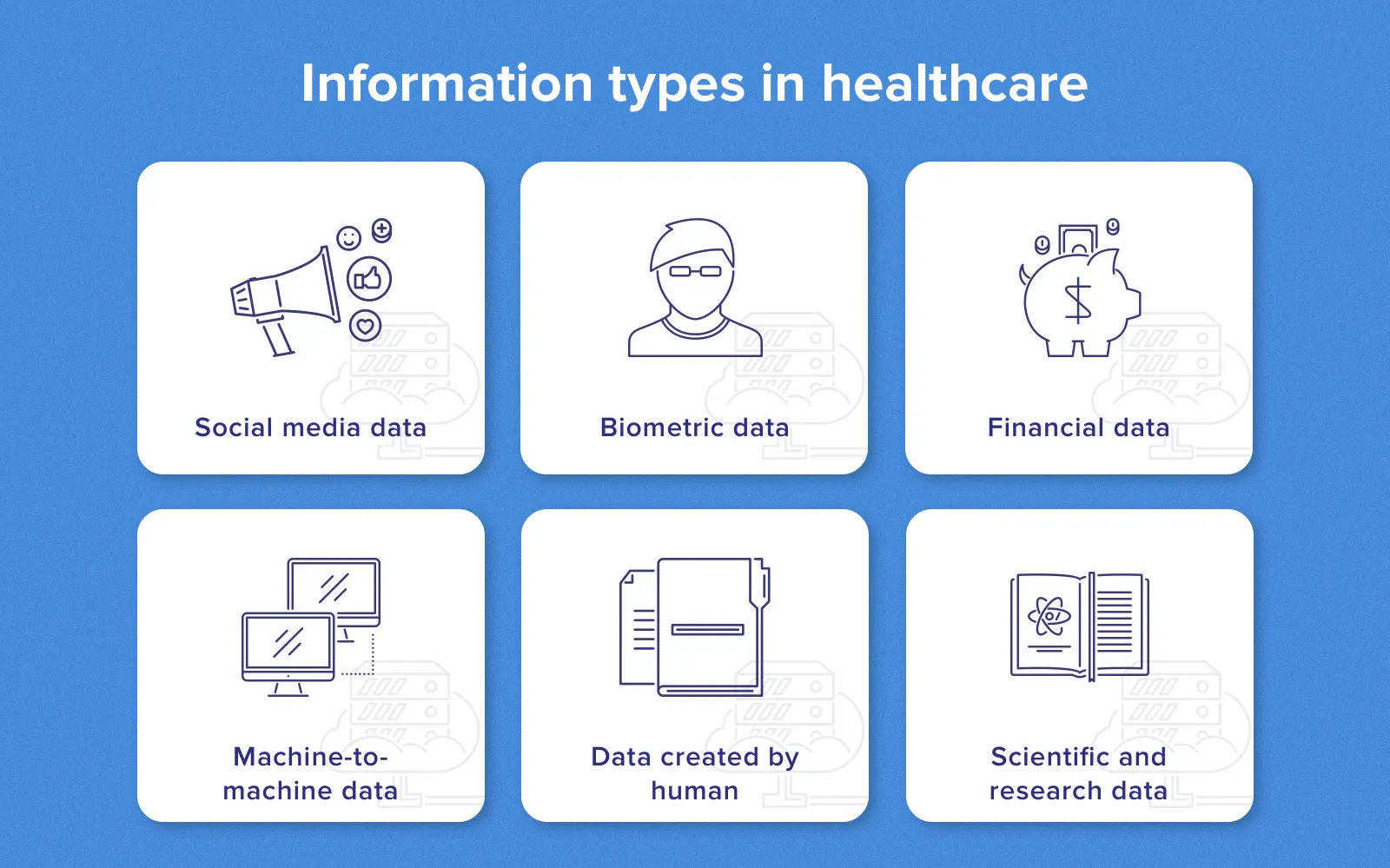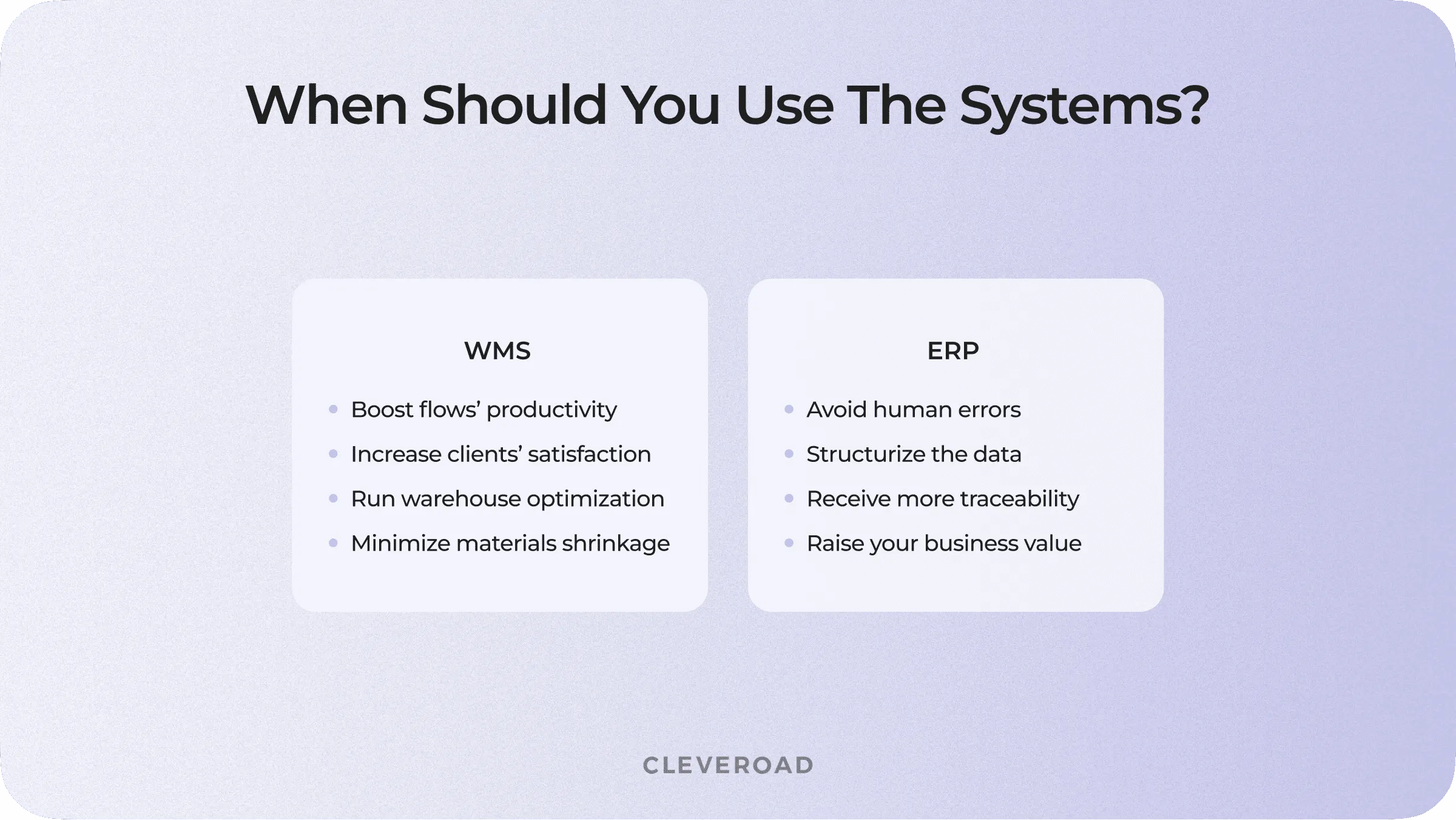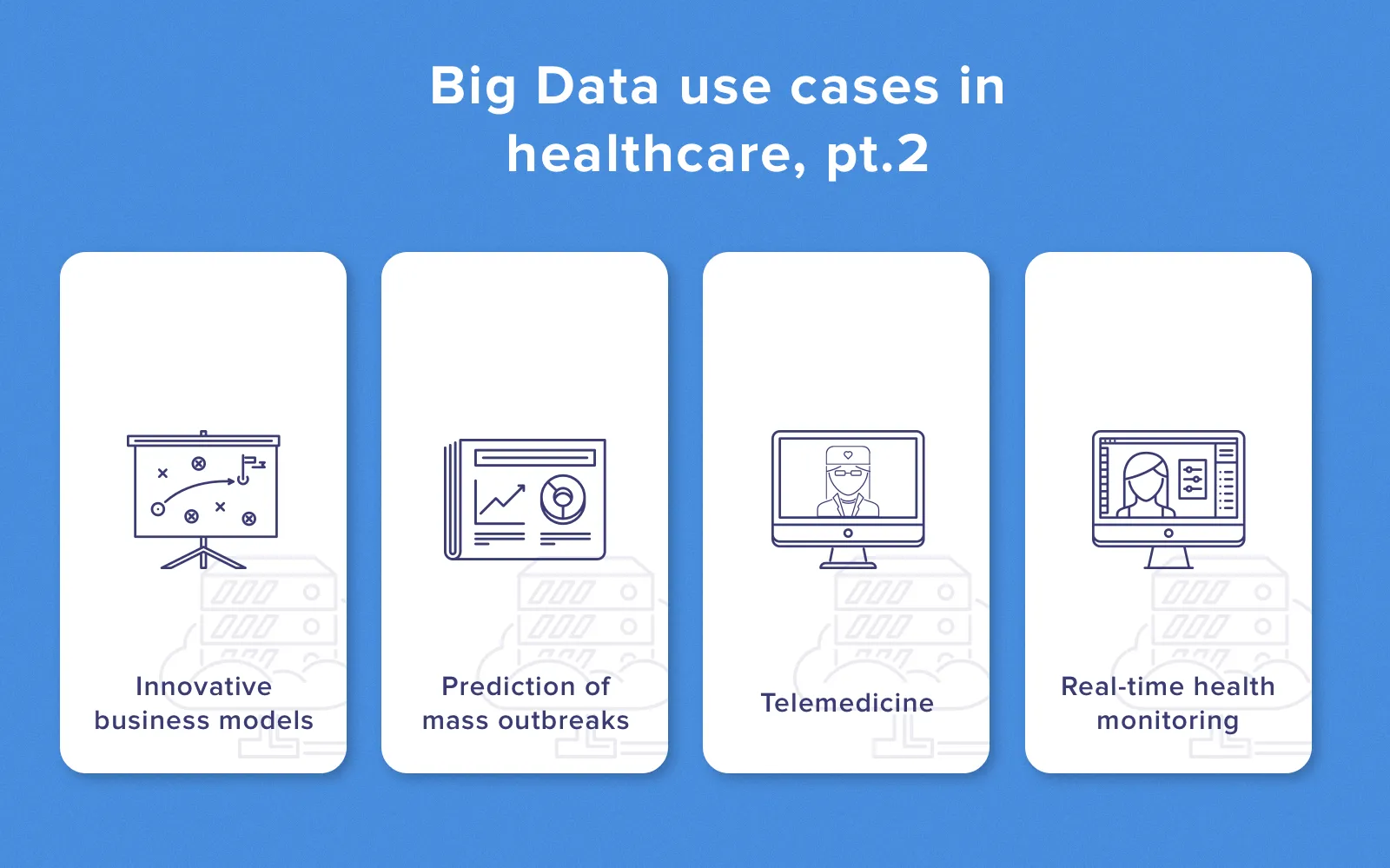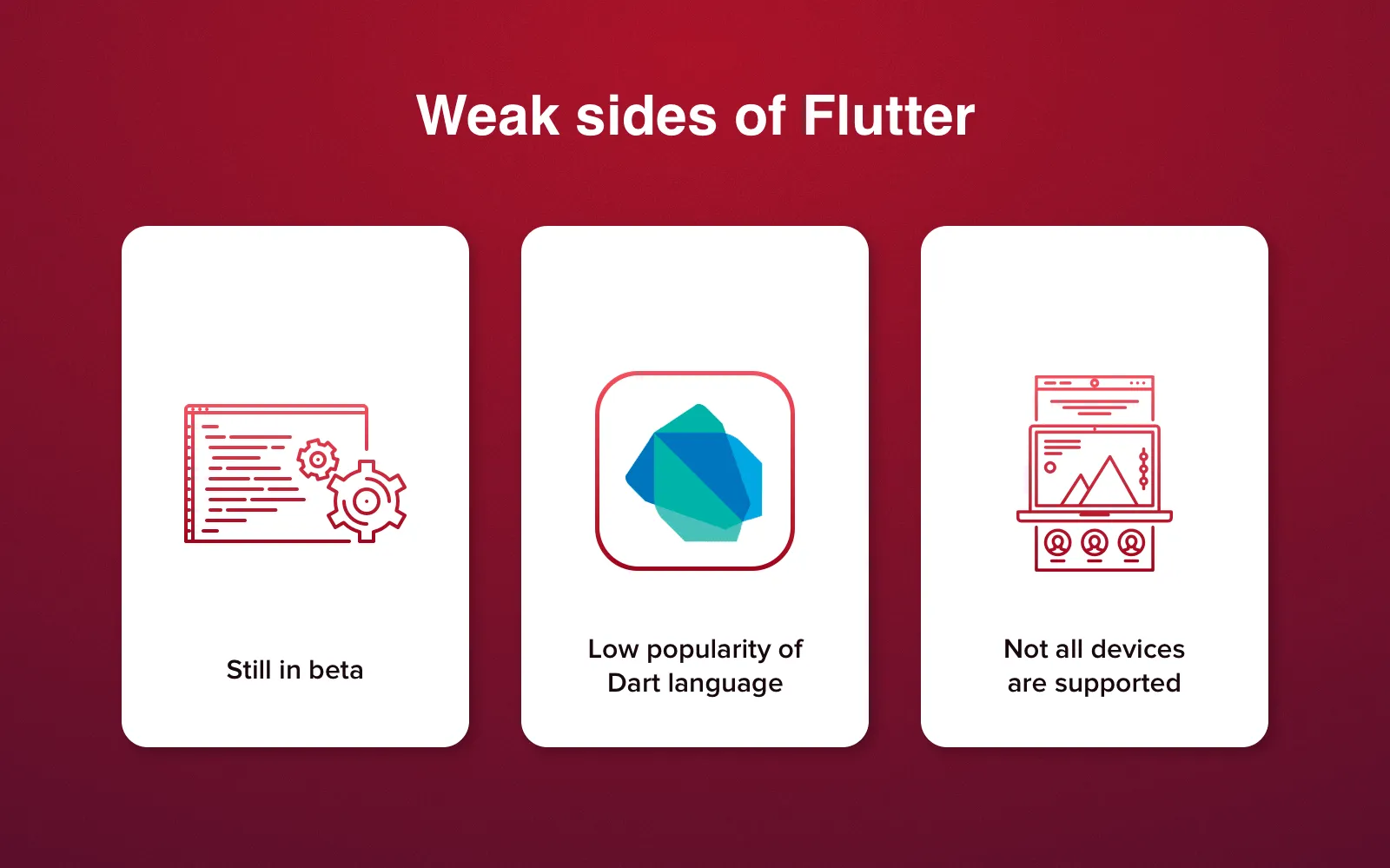7 Big Data Use Cases That Enhance Healthcare Field
Updated 08 Sep 2023
11 Min
3525 Views
If you need some examples of how Big Data technologies change our world for better, then pay some attention to the healthcare field. It helps not only increase profit and reduce costs but also solve many global problems mankind faces. The population is growing, so it is important to develop predictive analytics to predict epidemics, improve treatment methods and so on. Big Data is a technology that allows people to do it if it is used in a right way.
The choice of healthcare software development services with a focus on Big Data is an informed decision for many healthcare providers. It brings great results in the long run.
Why is Big Data a breakthrough for healthcare?
Big data in medicine should be processed, it is an integral part of any data processing. And in a healthcare field, this issue is acuter since failure and mistakes can even cost a life.
There are six types of information in healthcare:

Types of information available in healthcare field
See how Big Data can change your business. Read How Big Data sources contribute to big progress in your business
- Social media data. This type is referred to information received from healthcare apps and even Facebook or Twitter;
- Machine-to-machine data. This data is received from digital devices like fitness trackers, sensors etc.;
- Financial data. Payment records for healthcare services and other documents related to financial processes;
- Biometric data. Fingerprints, X-Ray images, MRI scans etc.;
- Data created by human. Paper medical documents, medical cards, EMR (electronic medical records) etc.;
- Scientific and research data. Analysis of new drugs, their influence on human's body, negative effects and so on.
Today Big Data application in healthcare is oriented on a high-level and quick treatment process. For example, after healthcare reforms in the USA, more attention should be paid directly to the efficiency of treatment performed. Due to Big Data analysis, and processing technologies, doctors will receive a salary not for treatment process but for skills to cure patients' diseases fast and keep their health in good condition.
Another important approach to the usage of Big Data in healthcare is the prediction of expenses. It is based on a rich analysis of multiple statistical data like the number of patients with chronic disease, complaints against specific doctors, the number of second visits, epidemic indices etc.
Healthcare specialists can use Big Data analysis to see the periodicity of second visits, missed visits, the total time of surgeries, whether doctors have enough medicines and tools to perform a proper surgery or there is a lack. As a result, it can increase the number of surgeries, and it leads to the reduction of costs. Doctors can perform post-operative treatment faster and see more patients which need their help.
As a result, Big Data analysis allows medical services provider to reduce the duration of hospital stay of patients, reduce the number of the second hospitalization.
There are a few types of Big Data analytics in healthcare where Big Data analysis can be used:
- descriptive analytics;
- diagnostic analytics;
- predictive analytics;
- prescriptive analytics.
That is a full cycle starting from the determination of the problem to the solutions on how to avoid such problem in future.
Now let's study methods how Big Data can be used in healthcare more deeply.
Big Data use cases in healthcare
There are many ways of use of Big Data in healthcare.

How Big Data can be used in healthcare, part 1
Predictive analytics and quick diagnosis
The market of wearables is growing every year, and it may be worth $25 billion by 2019 according to CCS Insight. And today wearables are used to analyze all collected data and send it to the personal doctor.
Even if a tracked person has no any health complaints, large volumes of collected information help specialists create flexible and evolving databases. Then, a computer with artificial intelligence will be able to make recommendations for each patient separately on the basis of data collected from a large number of patients.
And here artificial intelligence comes to the rescue. Neural networks can analyze data collected from trackers and detect propensities to any disease, they help patients find out about it and take well-timed measures. So it can be a precise prediction of all diseases and methods of their prevention. Using a complex analysis, doctors can predict the result of a specific treatment course for each patient on the basis of their way of life. So Big Data healthcare use cases include predictive analytics primarily.
The use of wearables for medical data collection simplifies working with Big Data and opens a new niche to use it with advantages.
Discover well-tried ways to create a medical app. Read 3 important steps to take when you create a medical app for finding doctors
Finance management
Automated analysis of bills and funds flow with the help of machine learning helps reduce the number of mistakes and embezzlements. Systems that work with Big Data allow specialists to form price plans that take into account financial capabilities of patients and their demands in services. That is how Big Data is changing healthcare. And such systems can change payment system where patients will pay for the quality of medical assistance, and it will help manage expenses for drugs and labor of hospital staff. Also, money management app can be a good option to control all expenses.
Medical research operations
This item refers to new capabilities of predictive modeling in the development of new medicines. Statistical algorithms and Big Data tools help conduct clinical trials and invite patients to test new medicines. Processing of results of such tests is also an important application of Big Data. Approaches to personalized medicines today rank the 1st place in healthcare research and development procedures.
On the basis of processing of huge volumes of genetical data, doctors can prescribe new and target medicines and new treatment methods, as it was already mentioned above. In addition, R&D procedures in the segregation of disease patterns assist doctors in distinguishing of risk factors and assessing of various diseases progression. An important role of Big Data in healthcare is obvious.

How Big Data can be used in healthcare, part 2
Innovative business models
Benefits of Big Data in healthcare also include models that are based on digital data can enhance existing models or even surpass them. Data aggregators provide third parties with analyzed and assembled data blocks. For example, pharmaceutical companies can have interest in clinical records of patients that took the same medicine, so they can buy this data. Also, online platforms and other software for patients and doctors can be the start of innovative business models generation.
Prediction of mass outbreaks
Here Big Data also plays an important role. Using large analysis of data, scientists can build social models of population health and predictive models of outbreaks progress.
Telemedicine
One more example of Big Data use in healthcare. Telemedicine has got a second wind with the evolution of smartphones and tablets. In fact, telemedicine is a capability to provide patients with medical services on distance. It can be both primary diagnosis and consultation and comprehensive monitoring of patient health. Simply put, this is a remote visit to a qualified doctor. Today doctors use telemedicine to build a personal treatment plan for a patient and prevent hospitalization.
Telemedicine makes it possible to prevent patient health decline. If there is no need to visit a clinic, expenses for medical services can be decreased. And consultation can be performed from any point of the world that is convenient for everybody. All the essential patient information can be collected using data visualization in healthcare and big data.
Real-time health monitoring
Apart from using telemedicine, today doctors try to use healthcare data technology to monitor the health of their patients in a real-time mode. Including data from all sensors, fitness wristbands and so on, it all can be processed and analyzed in real time, and if there is any discrepancy with a normal condition, an alert will be sent to the doctor immediately. Machine learning algorithms help implement it for quick processing and analysis.
Learn more about top Big Data startups. Read Future of Big Data and the top 7 successful companies which already use it
So, depending on chronic disease patient has, doctors can see signs of any changes immediately. If something goes wrong, doctors contact patients and give them useful instructions what to undertake.
Given the above mentioned, we can say that Big Data and healthcare are two fields that can be mutually beneficial for each other. Also, keep in mind that Big Data requires not only appropriate hardware but also app development services which provide software solutions that will ensure a proper functioning and continuous data collection. And Cleveroad has enough experience to work with Big Data solutions and we can help you solve any challenge related to Big Data.
Factors that inhibit the development of Big Data
If you intend to work with Big Data technologies in healthcare, you should know all aspects that have a negative influence on the development of Big Data. Why doesn't it grow faster than it does at the moment? Let's see main reasons for problems with Big Data in healthcare:

Drawbacks of Big Data in medicine field
Lack of qualified IT specialists
There are not so many IT specialists in healthcare that can manage software and control IT support in clinics. As a rule, clinics can have really talented and skilled physicians, but considering growing Big Data trends, IT staff is not less important. That is why this gap should be filled to facilitate the evolution of Big Data in healthcare.
Low financing
Healthcare data solutions have a similar challenge with the IoT like financial limitations. Governments don't allocate a sufficient amount of money that can make it possible accelerate the process of Big Data development in healthcare.
Security
This is one of the acutest issues from this list. The matter is that medical personal data should be secured, all EHRs (find more in our guide on how to create an EHR) should be closed from third parties, and it is an undisputed fact. To start working with Big Data, specialists should get access to this data, right? And if hospitals grant access to a few specialists, it is not a problem. But if a whole team starts working with personal patients data, it can lead to privacy breach and a large problem. It is impossible to fix this problem completely, but there is a method how to protect data as much as possible. Healthcare organizations should choose good Big Data vendors with a secure and well-supported distribution to get first-rate Big Data solutions for healthcare.
Challenge of interoperability
There is still a challenge in interoperability between healthcare systems. It means that due to several factors, many healthcare systems cannot work together. These factors include the following ones:
- No specific standards. As usual, healthcare protocols standards depend on providers and regions, that is why it is one of the barriers to interoperability;
- Discrepancies in privacy laws. Different states can have discrepancies in privacy rules, and providers worry about the breach of security when exchanging personal medical information;
- Old school approach. It may seem a bit strange but despite the age of digital technologies, some healthcare providers still use paper health records and other documents that are stored in large rooms in folders. So it is necessary to digitize these documents before to start a talk about Big Data.
- Semantic challenge. Healthcare applications and systems may use different terminology that can lead to incompatibility between two systems.
That is the list of main challenges Big Data technologies face for today. All of them are corrigible, but it takes a lot of time to fix everything.
Find out how we estimate your project wisely. Read How to estimate a software project better
What do you think about our article? Big Data and medicine field can co-exist in a fruitful way with each other, but it is necessary to elaborate a competent approach in every specific case. Do you need an appropriate healthcare software to work with Big Data technologies? Contact us and describe your idea, and we will do everything that depends on us. Mind to click a Subscribe button on the right side - you will get some interesting books for free!
Today Big Data application in healthcare is oriented on a high-level and quick treatment process. For example, after healthcare reforms in the USA, more attention should be paid directly to the efficiency of treatment performed. Due to Big Data analysis, and processing technologies, doctors will receive a salary not for treatment process but for skills to cure patients' diseases fast and keep their health in good condition.
Another important approach to the usage of Big Data in healthcare is the prediction of expenses. It is based on a rich analysis of multiple statistical data like the number of patients with chronic disease, complaints against specific doctors, the number of second visits, epidemic indices etc.
Here are the most common use cases for big data in healthcare:
- Predictive analytics and quick diagnosis
- Finance management
- Medical research operations
- Prediction of mass outbreaks
- Telemedicine
- Real-time health monitoring
Here's the list of main drawbacks of big data in healthcare:
- Lack of qualified IT specialists
- Low financing
- Security
- Challenge of interoperability
Big data in healthcare is important because it can speed up routine processes and make physicians' work more time-efficient. Besides, with big data, doctors can find new, previously hidden patterns in patients' EHRs and make the treatment process more effective.
Big Data analysis allows medical services provider to reduce the duration of hospital stay of patients, reduce the number of the second hospitalization.
There are a few types of Big Data analytics in healthcare where Big Data analysis can be used:
- descriptive analytics
- diagnostic analytics
- predictive analytics
- prescriptive analytics.
That is a full cycle starting from the determination of the problem to the solutions on how to avoid such problem in future.
To prepare and analyze healthcare data you need to develop a special system called Enterprise Data Warehouse. Learn more about How to Create EDW in our guide.

Evgeniy Altynpara is a CTO and member of the Forbes Councils’ community of tech professionals. He is an expert in software development and technological entrepreneurship and has 10+years of experience in digital transformation consulting in Healthcare, FinTech, Supply Chain and Logistics
Give us your impressions about this article
Give us your impressions about this article